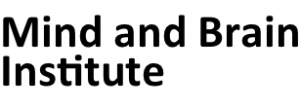German Authorities Approve Psilocybin Depression Study
After almost two years of hard work (unbelievable from the outside) we finally made it! Yesterday – November 17th, 2020 – we were notified that the Federal Institute for Drugs and Medical Devices (Bundesinstitut für Arzneimittel und Medizinprodukte, BfArM) approves our study on the “Efficacy and Safety of Psilocybin in Treatment-Resistant Depression” (Acronym: EPIsoDE). The study had already been approved by the ethics committee II of the University of Heidelberg a couple of days ago.
Our preparations for the study are ongoing, funding from the Federal Ministry of Education and Research (BMBF) most likely begins on March 1, 2021 (I reported on this major accomplishment in my post on April 24, 2020). We will provide details of the study on a dedicated study website, which will go online shortly. For me personally, the study represents a milestone for German psychiatry, from which I expect not only impulses for treatment research, but also insights into the nature of mental illness and the foundations of consciousness.
Today I would like to express my sincerest gratitude to all those who have contributed to this success:
First and foremost, Lea Mertens, a young psychologist and doctoral student in my department, has to be mentioned. While I was keeping “the big picture” in mind, she took care of all the details – and there really were a lot. Without her we wouldn’t be where we are today. She is a wonderful person and I’m sure that she has a great career ahead of her as a psychotherapist and scientist. I’m glad that she joined me at the ZI two years ago.
I would like to thank the colleagues in the team in Berlin, both from the Department of Psychiatry and Psychotherapy at the Charité Berlin, Campus Mitte (Michael Koslowski, Tomislav Majic, Felix Betzler, Ricarda Evens, Lea Mascarell-Maricic and Andreas Ströhle) and from the MIND Foundation (Andrea and Henrik Jungaberle, Max Wolff). We as a team, also including ZI psychiatrist Maria Gilles, developed a study protocol and treatment manual at the highest methodological level.
I would also like to thank the employees of the USONA Institute in the USA. USONA will provide us with the psilocybin for our study. Tura Patterson, Laura McCormick, Nicole Smialek and Kelsey O’Hern have done a lot to ensure that we will have GMP quality psilocybin in just a few weeks to safely treat our patients.
My big thanks also go to Marija Tubic from the pharmacy at Mainz University. Getting psilocybin in GMP quality is one thing; making investigational drugs out of them that patients can receive in a clinical trial is another. Marija Tubic has dedicated herself to this with great commitment and true competence.
I would like to thank the CEO of the Central Institute of Mental Health (ZI), Andreas Meyer-Lindenberg, for supporting me in touching the “hot iron” of psychedelic research. That is not a matter of course at a German university, and I know that it would not have been possible everywhere in Germany. I am proud to be a ZI researcher and to have opened this important gate here. Thanks are also due to the administration of the ZI, the third-party funding department and the legal department, who supported us in all administrative processes. People there were sometimes desperate about my demands and wishes. An official press release will be published tomorrow by our communications department.
I would like to thank the assessors of the BfArM for their generous advice on preparing for the study and the fair assessment of our application, and I thank the members of the ethics committee for the intensive discussions and the openness towards this promising therapy option.
Funding for our study has not yet started, but I would like to thank those responsible in the Federal Ministry of Education and Research for supporting this project, which is particularly important to me. Our study will be one of the largest and most extensive that has ever been carried out with a psychedelic. That a German government is making progress in promoting this research is a great signal to the world.
Finally, my heartfelt thanks go to Andrea and Henrik Jungaberle, the founders of the MIND Foundation. I learned from these two enthusiastic people that this is about more than just clinical testing of a substance. It is about the creation of an ecosystem and a culture of altered states of consciousness, it is about questions of being human and a better life for every being. Together we went on a journey to create something that addresses all of these questions (including the foundation of OVID Health Systems). Today I have a real friendship with Andrea and Henrik, for which I am very grateful. And I thank the team members of the MIND Foundation, which I met over the last year, many great people who are dedicated to the advancement of humanity.



